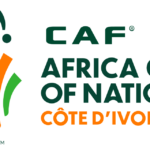
By Megan Walker, Media Strategist at The MediaShop
 According to Tom Cotterill for Mail Online, the Queen’s funeral was expected to be the most-watched TV event in history with four billion global viewers anticipated – more than Live Aid 1985 and Charles and Diana’s wedding in 1981.
According to Tom Cotterill for Mail Online, the Queen’s funeral was expected to be the most-watched TV event in history with four billion global viewers anticipated – more than Live Aid 1985 and Charles and Diana’s wedding in 1981.
“It had been hoped the numbers would be revealed by 9.30am on Tuesday 20th Sept, by the Broadcasters Audience Research Board (BARB). But it is now believed it will take more to time to count the enormous number of viewers,” he reported. PUBLISHED: 11:08 BST, 20 September 2022 | UPDATED: 12:04 BST, 20 September 2022
The Queens funeral got me thinking of other events in recent history that would also have seen milestone TV viewership for their time.
The royals can always be counted on to draw a crowd, as recent royal events have shown. Prince Charles and Lady Diana Spencer’s wedding drew an impressive one billion viewers to watch the wedding dubbed the ‘wedding of the century’ on July 29th, 1981. The then Prince Harry and Meghan Markle’s wedding had a staggering 1.9 billion viewers when they wed on May 19, 2018. They wed on a weekend which would typically increase accessibility to viewership, but interestingly they chose a day that clashed with the FA Cup Final – but still drew huge numbers.
Keeping with royalty but on a more sombre note, the funeral of Lady Diana on Sept 6th,1997 drew two billion viewers. Pop royalty, Michael Jackson, the king of pop’s memorial service also had viewership of two billion. On July 7, 2009, twelve days after the music legend died, an audience of two billion people tuned in to watch the incredibly star-studded event that was hosted in honour of Jackson. Way back in 1963, President John F Kennedy’s funeral viewership of an estimated 180 million viewers was considered big. How times (and star status), as well as access to televised events have changed things. At the time, these 180 million viewers equated to 93% of American homes equipped with a television.
Other massive audience drawcards through the history of television have been sports events, the ‘making of history’ productions and notable disastrous events.
When it comes to sportsmen and their ability to draw a crowd, there are arguably not many who could match Muhammad Ali. Ali drew massive support and viewers both within his illustrious sports career as well as his ‘final walk’ – his memorial service drew one billion viewers. The Ali vs. Foreman fight, ‘The Rumble in the Jungle’, probably one of his best known of his fights had a billion viewers. His opponent, Foreman was the 4 to1 favourite going into the fight as Heavyweight Champion of the World and undefeated in forty fights. These odds only made Ali’s victory sweeter and more memorable.
Some of the Sporting events that all drew viewership of 1 billion or more include:
· The 2006 World Cup Final, France vs. Italy which was famous (or infamous) for the Zinedine Zidane headbutt into the chest of Marco Materazzi.
· The 2010 World cup final, Spain vs Netherlands
· The 2015 ICC Cricket world cup, India vs. Pakistan
· The 2018 World cup final, France vs Croatia
The 1984 L.A. Olympics opening ceremony had 1.5 billion viewers. In 1996 the Atlanta Olympics opening ceremony had over 3 billion viewers, as did the 2008 Beijing Olympics opening ceremony.
In the genre of ‘the making of history’ one of the most recognisable and famous events would have to be the Apollo 11 Moon Landing, which at the time, drew 650 million viewers. When Neil Armstrong touched the Eagle down on the surface of the moon at 8:17 p.m. UTC on July 20, 1969, the population of planet earth was 3.61-billion people, 600 million of them tuned in to watch Armstrong’s first steps on the moon – an unprecedented 1/6th of planet earth’s population!
Another event also carved into the history books but for far more tragic reasons, was the terror attacks on the Twin Towers of Sept 11th 2001, which achieved TV viewership of 2 billion as people watched both the horror of the tragedy and the many acts of heroism unfold around the event.
It may be surprising for some of us to know that televised music concerts have been amongst some of the most watched televised events in history.
On January 14, 1973, Elvis Presley performed what would become his final ‘hurrah,’ as satellites broadcasted “Aloha from Hawaii” to a billion people in 40 countries. Elvis never toured outside of North America because his manager, Colonel Tom Parker was an illegal immigrant and feared deportation. To make up for that, the Colonel produced what would become the most expensive television production ever (at that time) and broadcast it around the world. The cost was $2.5 million, and despite the Super Bowl VII airing at the same time, it attracted a billion viewers.
On July 13, 1985, the Live Aid concert drew 1.9-billion people as dual concerts in Wembley Stadium in London and John F. Kennedy Stadium in Philadelphia rocked the world for a good cause. Its sequel, Live 8 was held on the 20th anniversary of Live Aid. On July 2, 2005 all the countries in the G8 and South Africa held simultaneous concerts to help raise money to eradicate poverty worldwide, while two billion people tuned in.
TV remains one of the most powerful forms of mass media in the Western world, even decades after its first appearance, it is a phenomenally powerful communication tool. As illustrated by these above noteworthy examples, the most recent being QE II’s funeral, TV has the power to unite people from around the world as they tune in at the same time to capture live broadcasts of world-changing events. Even in a time when the Internet is a pervasive force, the power of televised historical events remains evident. Perhaps some of the power lies in the fact that there is something meaningful and moving when people from all around the world can simultaneously share in experiences of joy, triumph and tragedy, a literal tapping into the collective consciousness.
Sources and references:
https://www.history101.com/27-of-the-most-watched-events-in-history/
https://www.ranker.com/list/most-watched-events-in-television-history/brendan-kelly
- MRF Unveils Latest MAPS® Data - 20th February 2025
- The BRC announces changes to the board and updates for 2025 - 17th December 2024
- Top 50 DSTV TV programmes – October 2024 - 12th November 2024

